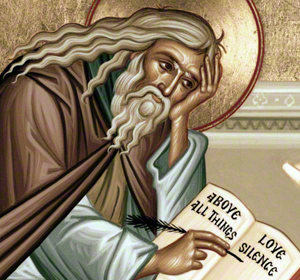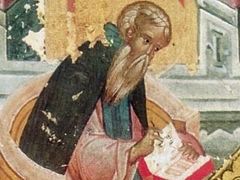
The gentleman related to the host how shortly after becoming a Christian, he suffered from severe anxiety and depression, being filled with an inner turmoil about whether or not he was one of the “saved”. It was only after years of therapy that he was able to “work through things”. The host’s response was not of surprise, but rather, he accepted this man’s story as one he had heard seemingly countless times before.
At the time, I was quite shocked by the story and response, and found it disturbing that a seemingly normal and balanced individual would, upon becoming religious, undergo what he himself characterized as a breakdown.
As I thought about this, it occurred to me that there is a certain spiritual neurosis that religious people often develop and that this is indeed nothing new and something that we Orthodox are not immune to. Our beloved Father and contemporary, Saint Porphyrios, speaks on this topic at some length:
For many people, however, religion is struggle, a source of agony and anxiety. That’s why many of the ‘religious minded’ are regarded as unfortunates, because others can see the desperate state they are in. And so it is. Because for the person who doesn’t understand the deeper meaning of religion and doesn’t experience it, religion ends up as an illness, and indeed a terrible illness. So terrible that the person becomes weak willed and spineless… They make prostrations and cross themselves in Church and they say, ‘we are unworthy sinners’, then as soon as they come out they start to blaspheme everything holy whenever someone upsets them a little.
St. Porphyrios goes on to say that the healing and transfiguring power of our Christian faith has a “most important precondition” and that precondition is humility.
It was precisely for this reason that the great luminary of the desert and our Father among the Saints, Abba Isaac, over a thousand years ago recognized that any and every religious activity without humility is nothing and worse than nothing. He tells us, “Humility, even without works, gains forgiveness for many offenses; but without her, works are of no profit to us and instead prepare for us great evils.”
According to Abba Isaac, humility is the way to authentic life, balance, and both wholeness and holiness. “A humble man is never rushed, hasty, or agitated, never has any hot or volatile thoughts, but at all times remains calm. Even if the heavens were to fall upon the earth, the humble man would not be dismayed.”
He teaches that humility is a gift from God. However, we can and must prepare ourselves and strive to become worthy of such an exalted gift. This is done through a “precise knowledge of one’s sins or as a result of recognizing the lowliness of our Lord – or rather, as a result of recollecting the greatness of God and the extent to which the greatness of the Lord lowered itself…”
Abba Isaac raises the lowliness of the humble man to such heights that he says, “Rightly directed labors and humility make man a god upon earth.” We must remember that our ascent to God upon the ladder of humility is deifying because our Lord descended to us upon the ladder of humility – or rather, He has Himself become for us the ladder of humility uniting us to God.
For humility is the clothing of the Godhead. The Word who became man clothed Himself in it…Every man who has been clothed in it has truly been made like unto Him who came down from His own exaltedness, and hid the splendor of His majesty… less creation be utterly consumed by the contemplation of Him.
_________________________________________



